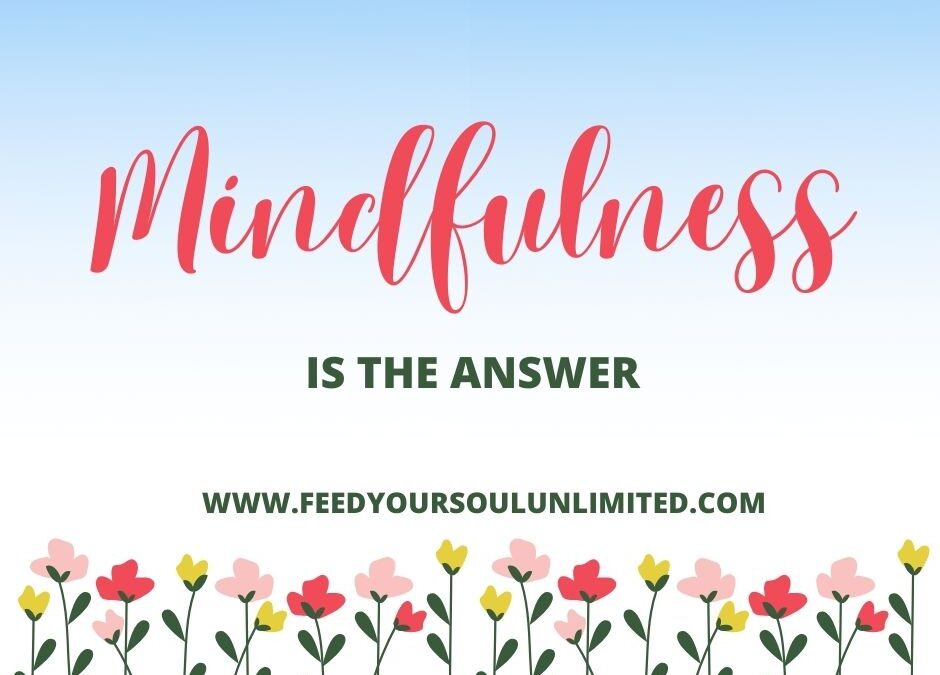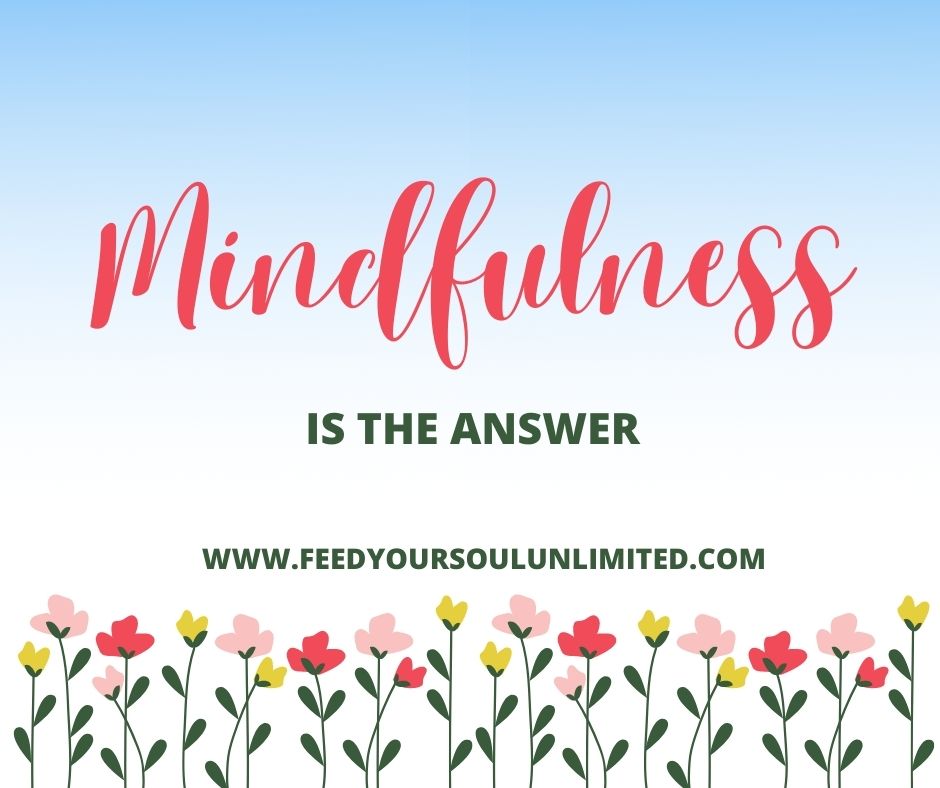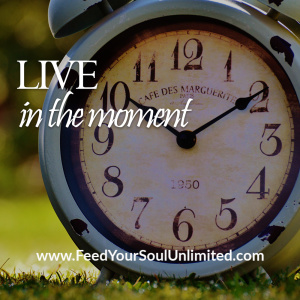
by KimMcLaughlin | Apr 12, 2022 | Binge eating, Emotional Eating, Self-Love




Strangely, the answer to the question how I stop emotionally eating is to be mindful. Being mindful is easier said than done.
Mindful.org says, “Mindfulness is the basic human ability to be fully present, aware of where we are, and what we’re doing, and not overly reactive, or overwhelmed by what’s going on around us.
Let’s take that definition and see what is going on with you right now:
- Are you fully present? Take a moment to get present.
- Are you aware of where you are?
- What are you doing? Take a moment to be aware.
- Are you reacting to anything right now?
- Are you feeling overwhelmed?
The concept of mindfulness is paying attention to what is actually happening in and around you right now.
It’s about being fully present in your body and what’s going on within you what you’re doing, but also what’s going on around you. Sometimes going on around us can be the difficult part because what’s coming at us, we might have a reaction to it, for reaction to it. And when we’re mindful, we can then come back into our body, assess what’s going on in us and around us, and then determine what to do, can you get how that fits with food, can you get how that fits with food, that I am fully present to what

How does mindfulness help with overeating?
Imaging the difference being totally present when you are eating and not responding to external or internal stimuli. Mindfulness and overeating can be tricky. It takes practicing it when we are eating and when we are not. Being mindful means, we are not soothing ourselves unconsciously with food. When we are not mindful it can feel like we are disconnected from our body and not present to the internal nor external cues. Having the tools to reconnect with yourself helps you when you come to the table (literally and figuratively).
Mindfulness takes practice
I have been sharing lately that I’ve noticed that I am calmer and more present and mindful than I have ever been. I started a mindful practice. The beginning of January 2022, I decided I was a little too scattered a little too outside of myself, and I needed something more formal and doing it every day. I started a mindfulness practice: daily readings, affirmations, some journaling. I don’t do all of them every day, but I do at least one of them every day. I am 100% confident that my stress has been reduced substantially what I know when my stress is reduced. I’m less likely to overeat because my stress is down. I am not reactionary to other people. I feel calmer inside of my body.
Mindfulness helps with Intuitive Eating
Intuitive Eating means we’re coming from what our body needs, coming from our insides and noticing what’s going on. This is the scary part that people talk to me about a lot is:
- How can I access in my body when I don’t trust my body?
- Why would I listen to what my body’s saying, if my body always says to just eat, or I know it’s going to tell me to eat?
- If you tell me, I can just eat food? Well, what food can I eat, because I need to know what the prescription is what the diet is, then I’ll know what to eat, then I’ll know what the plan is.
It can feel be scary to go inside of your body.
Mindfulness can give you the resource to feel empowered within your body. This mindfulness help when you are eating AND when you are just living your life. Being mindful, is the way to move out of a lot of emotions that can be detrimental to your relationship to yourself. Mindfulness can get you out of being reactionary.
How do we move into mindfulness?
You can start doing it now. One of my favorites ways is feeling yourself sitting in your seat right now. If you are sitting, feel your bottom on the chair. Feel your feet, where are your feet? Notice your hands, what are they doing? Notice your shoulders, where your shoulders at? Feel your jaw, how does it feel. The next thing I like to do is focus on deep breathing. Breathe in through your nose, out through your mouth. I just like to breathe in and breathe out. As I do that, I feel my shoulders drop, I feel my jaw drop, I feel myself more firmly in my seat. So being present in your body is as simple as noticing your body. You could do that all the time! When you’re sitting to eat, feel yourself in your seat, take a deep breath. When you’re going into work, feel your feel your feet on the ground, take a deep breath. That’s how you get to be mindful. And the more mindful we are more peaceful.
How can you mindfully eat?
The other part about mindful eating is really being mindful of what you’re eating, having a plate of food, sitting down, eating one bite at a time, putting your fork down, chewing your food, swallowing your food, wipe your mouth with your napkin. This makes eating a slower process. But it’s a more mindful process.
I encourage you to be present in your body as often as possible. Being mindful is really simple, not always easy, but it has a profound effect.
Be sure to check out the video that goes with this blog here.
Kim McLaughlin, MA is a Counselor, Speaker, Podcaster, and Inspirational Coach who specializes in working with people who suffer from binge eating and emotional eating. She is a Certified Intuitive Eating Counselor. She is the author of the book Feed Your Soul Nourish Your Life! A Six Step System to Peace with Food and the Amazon #1 Best Selling book Discovery Your Inspiration.
You can find Kim on her podcast Feed Your Soul with Kim and you can find it on all podcast platforms.
Wondering if you are an emotional eater? Sign up for the free Am I an Emotional Eater Quiz.

by KimMcLaughlin | May 3, 2019 | Podcast




Mindful living is about living in the present moment without judging yourself or others. When we are not in the present moment, we are then tied up fretting about the past or worrying about the future. For many of us, mindful living does not come naturally, because we tend to live on autopilot. The problem with living on autopilot mode is it often amps you up and literally takes you out of the moment.
For example, you’re driving to your favorite coffee shop to get a latte. You’re excited about treating yourself. As you’re driving, you start thinking about the argument you had with your partner earlier in the day. Before you know it, you’re all stressed again. Instead of living in the current moment and enjoying your latte, you found yourself re-living the past. When we are focused on the past, it is hard to move on and can lead to you to carrying around anger and other unpleasant emotions.
Mindful Living = Cultivating A Distraction Free Zone
Instead of reacting emotionally to situations like people do on autopilot, you can choose to focus on the current moment without letting your emotions take over.
You might see a distressing story on the news leading you to feel angry and sad. Instead of reaching for your phone to distract yourself, you can choose to stay in the moment. You acknowledge your emotions without judgement. This frees you from losing an hour or even a day of productivity because you were fixated on this one moment.
Mindful Living Makes You More Appreciative
During less enjoyable moments, like while you’re cleaning your home or doing an unpleasant task at work, it can be tempting to let your mind wander. But part of mindful living is staying in the moment, even if that moment might be viewed as unpleasant or uncomfortable.
However, just because you’re staying aware during an unpleasant moment, you don’t have to give into feelings of negativity, like sadness, boredom, or loneliness. Instead, focus on giving thanks. For example, you might say something like, “I’m grateful that I have a job to pay my bills” or “I’m blessed to have a home to clean”. Now, you’ve managed to stay in the moment without letting yourself focus on the negative.
Mindful Living Improves Your Mood
Few things can improve your mood quite like mindful living. Often, anxious thoughts are the result of worrying about the future, while sad thoughts are related to regretting the past. Mindful living helps because it forces you to stop overthinking. Unless there’s something you can do to change your past, you have to accept what’s happened in your life. If you do find that you’re frequently haunted by regrets or always worrying about tomorrow, it might be smart to speak to a trained counselor who can help you move on.
Mindful living is one simple way to improve your life. Try to spend a week focused on mindful living and see how your thoughts change.
Journal Your Thoughts:
- What are some regrets from your past that you carry around?
- What are some worries about the future that you find yourself fixated on? Do you really believe that worrying changes the future? Why or why not?
- Mindful living sometimes involves acknowledging unpleasant feelings. What do you normally do when you feel strong emotions? Do you get overly angry, overeat, and feel anxious?
Kim McLaughlin M.A. is a counselor and a motivational coach working with people who engage in emotional eating or binge eating. She is a Certified Intuitive Eating Counselor. If you are in need of services contact Kim McLaughlin here.
Kim is the author of the best-selling book Feed Your Soul; Nourish Your Life! A Six Step System to Peace with Food. Learn more about her book here.
Kim McLaughlin has been identified as writing one of the Top 50 Blogs about Emotional Eating by the Institute on Emotional Eating. Sign up for her free Special Report: Top Strategies to End Binge Eating here or visit her website at www.FeedYourSoulTherapy.com.
by KimMcLaughlin | May 18, 2017 | Podcast



 I have a confession to make. I tend to eat fast, no matter how hungry I am. I have not really focused on changing this behavior, because I have learned to adapt to it by putting less on my plate (so I do not end up overeating). I know the importance of eating slowing: so our mind can catch up with our body sensation of fullness (satiety). I have heard from many nutritionists it takes 20 minutes for our brain to register we are full.
I have a confession to make. I tend to eat fast, no matter how hungry I am. I have not really focused on changing this behavior, because I have learned to adapt to it by putting less on my plate (so I do not end up overeating). I know the importance of eating slowing: so our mind can catch up with our body sensation of fullness (satiety). I have heard from many nutritionists it takes 20 minutes for our brain to register we are full.

Carpe Diem
I did not notice I ate fast, until my family pointed out that I often finish eating earlier than they do. Along with putting less on my plate, to ensure I do not overeat, I have learned to not put any more on my plate until the 20 minutes has passed. I can then make the decision to eat more due to my physical hunger. I would like to eat slower, since I do know that I can then feel my fullness and not overeat. This is a process, a journey for me, just like it can be for you too.
I know (in my head) all of the benefits of eating more slowly:
- You can tend to eat less.
- You know when you are full more easily.
- You have time to consider what you are eating and how it is making your body feel.
- You can then have more interesting conversations with people at your table.
So, I am on a mission, for myself, to slow down my eating. I thought you might have a similar desire.
This is my plan to help me accomplish my goal.
- I will still put less than what I think I want to eat plate (as I have always done), knowing that I can still have more, if I am still hungry.
- I will continue to not eat in the car or in front of the tv. I gave that up a long time ago, since that the places where lots of mindless eating can happen.
- I will take a bite put my fork down, chew and then pick up my fork again. This can help me to slow down.
- I will take sips of water during my meal to slow me down.
- I will start my meals affirming I eat at a slow pace.
Eating slower is part of mindfulness during eating. Mindfulness is one of the six components to an Emotional Eating Solution. The other components: food, emotions, thoughts, lifestyle, body image/self-worth create the six components you need to have in alignment to have peace with food. I find it interesting that food is only one of the six components and the other five are the areas that can lead us to overeat.
I want you to see that this is a journey to be more accountable with food behavior, mine included. I will check back in with you to tell you how it is going. I find stating what I am doing to others helps me to hold myself accountable and reminds me to be more mindful.
Kim McLaughlin, MA is a Counselor and Motivational Coach who specializes in working with people who suffer from binge eating and emotional eating. She is a Certified Intuitive Eating Counselor.
Kim is the author of the Amazon #1 Best Selling Book Discover Your Inspiration. Check it out here.
Kim McLaughlin has been identified as writing one of the Top 50 Blogs about Emotional Eating by the Institute on Emotional Eating. Sign up for her free Special Report: Top Strategies to End Binge Eating here or visit her website at www.FeedYourSoulUnlimited.com.







